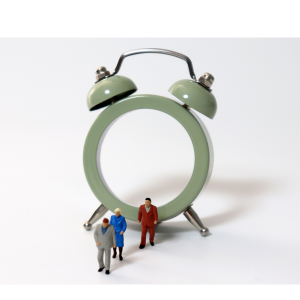
Discrimination stalks the land in many forms; and it’s not just gender, orientation, faith or ethnicity that routinely negatively impacts different minorities… but a condition that will (eventually) affect almost every one of us. Our age. By Tony Watts OBE
Plan to work late? Even if you need to carry on earning a crust into your 50s, 60s and beyond, the choice may be taken out of your control.
There’s a large (and rapidly growing) body of research to back up this conclusion. Earlier this year we learned that the over-50s are almost three times more likely to be out of employment for at least two years than other age groups.
Analysis of ONS data, undertaken by Rest Less, showed that 30 per cent of unemployed over-50s have been out of work for at least 12 months, 20 per cent for at least two years. This compares (somewhat unfavourably) to 20 per cent and 8 per cent of unemployed under-50s respectively.
Why? A clue comes from further research just released by Legal & General Retail Retirement (LGRR) and the Centre for Economics and Business Research (Cebr); they estimate that almost three million recent job seekers over 50 (52%) believe their age has made employers less likely to hire them.
The problem becomes more accentuated with age, directly affecting 46% of job seekers aged 50 – 59 and 64% of job seekers aged 60 – 69.
Where the problems start
These figures should come as no surprise: back in August a report conducted by ProAge and 55/Redefined showed that less than a quarter of younger HR professionals said they were “very willing” or “motivated” to recruit workers over 55.
Why does all this matter? Well, if a report came out highlighting discrimination on this scale against women, ethnic minorities or people of different faiths, the coverage in the national media would be huge. As it was (is), this is an issue that receives only minimal coverage.
So why IS it OK for employers to discriminate on this scale and get away with it? It certainly doesn’t make sense: after all, the large majority of us will (hopefully) reach our 50s and beyond at some point. Do younger people really want to perpetuate a situation and live in a society where, one day, they will find themselves out on their ear for the very reasons they failed to employ someone 20 years earlier?
It also doesn’t make sense because employers are missing out by assuming that older people are past it/lacking in energy/ insufficiently skilled or whatever. There’s plenty of evidence of what older workers bring to the workplace – including people handling, problem solving, loyalty, punctuality, mentoring and experience.
Slowly but surely, enlightened employers are getting the message that a diverse workforce – from different backgrounds as well as intergenerational – won’t fall so easily into the trap of group thinking, can complement each other and connect with a wider range of customers/clients, and they are seeking to improve their diversity and inclusion policies.
But not all employers are enlightened.
Behind the stats
Yes, many older workers do have caring responsibilities, while others will need to accommodate health issues. But the same argument can be made for parents with childcare responsibilities and the huge raft of younger adults who have to factor in their health or mobility when working. But one of the big shifts in recent years – turbo-boosted by Covid – has been the move towards more flexible working (including part time, working from home and so on) which allows a much bigger slice of the population to be productively employed.
At a time when (we are regularly told) we have a skills shortage in this country, it makes no sense for someone who wants to work to find themselves unemployable because of discriminatory employment practices.
Then there is the issue of financial security…
Putting older people on the scrapheap in their 60s and even 50s will also, longer term, have massive ramifications for the nation’s economy. Our later years in employment are invariably when we get the chance to top up or plug holes in our pensions: deny that opportunity and not only will that person be on benefits up until State Retirement Age but be far more likely to require State support into retirement.
Ignoring the untapped potential of older workers is dooming the nation to a lower GDP and increased costs in benefits. If the UK isn’t to find itself paying dearly in years to come, this is one “ism” that needs to be urgently addressed.
Keep ahead on your pension plans
If you’re already a RetireEasy LifePlan subscriber, you’ll know that using the programme regularly helps you keep tabs not only on how much you have saved for your retirement but also how much you’ll eventually need to retire comfortably. Remember to view your plan regularly as circumstances – such as the value of your investments or returns – can change.
